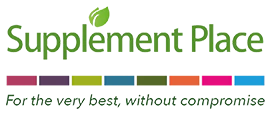Free UK Delivery over £39
*Conditions apply
‘Smart’ supplements are being heralded as the way forward in achieving enhanced powers of concentration. The question of how exactly this family of natural compounds can light up the brain’s neurotransmission systems to affect a sharper cognitive function is one that has been the subject of much research. The answers are sometimes surprising and always extremely interesting.
The name given to the wide range of compounds, vitamins, nutrients and supplements that have brain-enhancing status is nootropics (taken from the Greek words for ‘mind’ and bend’). Rest assured we are not talking about hallucinogens or any psychedelic substances. Miracle claims from certain quarters that nootropic substances can give you a brand-new super intellect and increase your IQ are misleading, because they can’t. However, what they can do is to sharpen your mind by improving cognitive function and thereby improve concentration skills, learning ability and memory. The science behind this has been established by numerous studies and clinical trials, which have found that nootropics work by boosting those biological molecular processes that signal neurotransmission. Some can even boost the production of proteins that give neuroprotection and encourage brain health.

This amazingly complex piece of biological technology is made up of water and fat, 75% water to be exact. This shows the fundamental necessity for having a healthy brain is to keep well hydrated and ensure an adequate and regular supply of nutrients, including the right kind of fats, in particular the omega 3 fatty acids known as DHA and EPA.
Brain cells have to regenerate themselves constantly so if you become dehydrated and short of those nutrients needed for cell repair, oxidative stress occurs. This means that free radicals in the form of electrons are able to attack brain cells and cognitive decline begins. This can happen at any age and can predispose you to earlier onset of cognitive decline.
There are four elements, nutrients and vitamins constantly needed by your brain if it is to stay healthy and even increase its sharp focus:
Recognised by the Institute of Medicine in 1998 as an ‘essential nutrient’, choline is a vital requirement for brain function, so important that without it we couldn’t think, sleep or have memories. Associated with the B vitamin group, choline is not a vitamin but a water-soluble nutrient, yet the body cannot produce enough for its own needs so has to get the majority of its supply from diet. Foods containing choline include:
Choline is needed to produce acetylcholine, a neurotransmitter necessary for learning, focus, concentration and memory. It also plays a major part in the process of DNA synthesis which is a key part of brain function.
Choline circulates within blood plasma to be utilised by the cholinergic nerve terminal. Small amounts are made in your body, but the levels needed are delicately balance. Too much choline, as with all nutrients and supplements, can be detrimental. Obtaining your choline from diet is fine and boosting from a supplement is safe if you choose your supplement or vitamin complex from a good quality and trusted source. Studies have found that falling short on the recommended intake of choline can have a detrimental effect on memory and concentration, and because neurotransmitter balance is so important, it’s a good choice to supplement with choline at a dose which has been expertly and accurately measured as in our nootropic complex or vitamin B complex supplement.

Otherwise known as cytidine-5-diphosphocholine or CDP choline, is used for the production of phospholipids. These are molecules that create cell membranes and protective coatings for the nerves all over the body.
The body manufactures citicoline from cytidine and choline and it is possible to boost levels by eating certain foods which contain enough of both. Choline-rich and cytidine-rich foods include:
Citicoline is more complex than regular choline but is the same as the molecule made by the brain. It is used in therapeutic medicine as citicoline but when produced naturally within the body is given the term CDP choline. The body can transform it into various beneficial compounds and is thought to have extra cognition-boosting advantages over regular choline. However, there are a few downsides to the use of citicoline:
Playing an important part in brain health are a couple of vitamins in the B group, which play an extra important role:
A plant with a very long history of health benefits, Rhodiola belongs to the Crassulaceae family of plants and is a native of Northern Europe and Arctic regions. It is known as an adaptogenic herb, meaning it can help protect and repair. It is known to have positive effects where cell damage has occurred, also for irregular heartbeat and mental fatigue. Rhodiola is thought to be a nootropic as it has been found to help boost concentration, memory and reduce mental fatigue. This is thought mainly to be due to compounds that are able to boost blood circulation and thereby improve mental function. Pharmacological studies have found that extracts can boost neurotransmitter levels, impact on central nervous system health and help cardiovascular function.

A cup of tea has a reputation for being a great help in times of stress and this is probably because it is rich in flavonoid antioxidants. It contains an amino acid called L-theanine that is able to modulate certain brain functions, particularly those relating to attention and focus.
L-theanine is found in both black and green tea and studies have shown that it has a regulating effect on brain chemicals such as serotonin and dopamine. This helps to calm and balance mood, allowing for better concentration and learning. Research has shown that L-theanine improves alpha-frequency brainwaves and this in turn leads to improved thought processing.
L-theanine may be taken as a supplement and is included in our Nootropic Complex capsules.

Both tea and coffee contain caffeine. Traditionally, we tend to think of tea as being a calming beverage. Many people turn to a strong, hot cup of tea following a shock of any kind, and it seem to have the power to comfort. Coffee is known for the opposite effect. How often do we use coffee to help us to stay alert? Both drinks contain caffeine yet it’s usually coffee we reach for to stimulate our brain, kickstart our mind and keep us awake after the hour when we should naturally be sleeping. Caffeine is possibly the most popular psychoactive drug in the Western world.
Due to its mentally stimulating effects, caffeine now has the classification of being a nootropic substance. However, as well as being a useful means of keeping going when your body and brain naturally crave sleep, caffeine also has a down-side. If taken in excess it can be an anxiety trigger, creating feelings of tension, physical jitters, and headaches. It can also keep you in a state of wakefulness long after the time when all you want to do is to sleep. No matter how sharply focussed you may wish to be, if you don’t get enough sleep, no amount of brain stimulating substances will help your concentration levels..
Nootropic stacks that contain caffeine should also contain L-theanine as this combination lessens the undesirable effects of caffeine and enhances the properties of both substances.
Finding your way through the maze of nutrients, vitamins, man-made synthetic compounds, minerals and substances that fall under the heading of ‘Nootropics’ can be daunting. There are those who consider themselves to be proficient ‘neurohackers’ and who put together their own combination or ‘stack’ of nootropics selected from the wide choice available. They also decide upon the amount and frequency of dosage. This is fine for those with expert pharmacology or neuroscience knowledge but for anyone else, it’s important to be sure you are getting it right.
Fortunately, there are reputable supplements available which have been expertly formulated by trained and highly ethical professionals and this is definitely the recommended route to take when choosing a safe and effective nootropic stack. With this advice in mind, we wish you sharp focus in making your decisions.
If you would like to discuss any aspects of using natural supplements or would find advice helpful, please feel free to contact us on 01297 553932

Always very efficient. Packages are able to come through the letter box which is a bonus. Particularly appreciate the vegan omega 3.

Over several years now they have always delivered me quality products prompty. I can recommend Supplement Place without hesitation.

Excellent service. I love the thin storage friendly containers that take up minimal space in my cupboard. Such a brilliant idea!! ?
Speak to our experienced team now!

Our long-established, family-run business sells the highest quality supplements with no unnecessary fillers or additives, so you can be confident you're getting clean, natural products at fair prices. Available worldwide.
Supplement Place
Unit 1 Golden Lion House
23 Fore Street
Seaton
EX12 2LE
9am to 4pm (GMT) United Kingdom
+44 1297 553932
Copyright © 2024 Supplement Place
Wait! Before You Leave
Please give us a call and
we’ll take great care of you.
Speak to real people!
If you have questions or just don't want to order online...

15% off your first order...
Get Discounts, Member Specials
and Updates!
Just sign up to the newsletter today and save 15% as a thank you.
